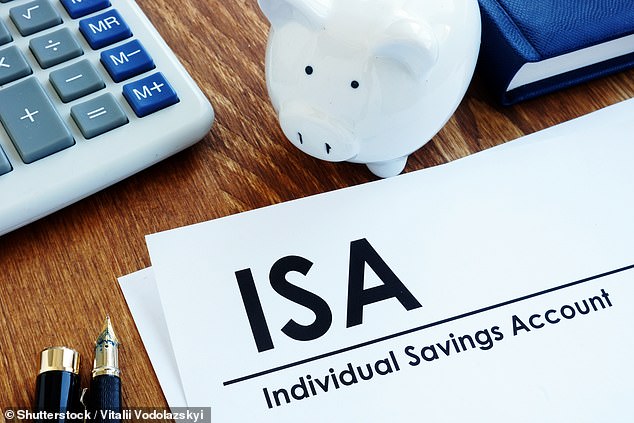For the first time in years, the big banks are paying the best rates on fixed-rate ISA accounts. And I was surprised to see them closing in on the best buying options on tax-free accounts.
But, as always, there’s a catch: you can’t take advantage of their tempting rates if you’ve already opened a cash ISA with them this tax year.
This is because they still operate under outdated rules that limited savers to holding only one cash ISA in a given tax year.
The rules were changed on 6 April, allowing savers to spread their £20,000 ISA allowance across as many cash ISAs as they like, with as many providers as they like.
Best rates: High Street banks now offer some of the best fixed-rate ISA deals around, but you won’t be able to get one if you’ve already opened a cash ISA with them this tax year.
However, if you try to open two or more accounts with a major bank, such as Barclays, HSBC, Lloyds, Halifax, NatWest or Santander, you will hit a wall.
It wouldn’t matter if the big banks’ rates were as bad as ever, but they are among the most competitive for one-year fixed-rate contracts.
Santander, for example, pays a fixed interest rate of 4.62 percent until September 1 next year, while Barclays offers 4.55 percent.
Five months after the new rules came into force, these banks have still not passed on the benefits to savers.
Not all of us have £20,000 to put into a tax-free ISA when we receive our annual allowance at the start of a new tax year. Instead, we build up the amount little by little when we can.
Check out the best cash Isa rates in our savings tables
This flexibility should be a big boost. For example, we can now open an ISA at the start of the year with whatever money is available and then convert a fixed-rate bond into another ISA when it matures.
The only condition is that we do not exceed the annual allowance of £20,000, but we are being surprised by the slowness of the banks to offer this new option.
Money Mail reader Ann Wicks transferred £4,500 from a non-ISA Easy Access account into a NatWest Fixed Rate ISA this tax year.
Now you want to increase your ISA savings, but this particular account has been withdrawn.
The bank’s 4.5 per cent fixed interest rate is out of reach as it only allows you to open one cash ISA a year and this account would be your second. Instead, you have to open an account with another provider.
Two-thirds of the top 15 providers are struggling to adapt to the new norm, including building societies in Yorkshire, Coventry and Leeds, along with Shawbrook Bank.
Skipton Building Society, Nationwide, Paragon, Aldermore and Zopa all let you open as many as you like. Nottingham BS’s one-year fixed rate ISA pays 4.66 per cent, fixed until 14 October 2025.
Bond rates in a race to the bottom
Rates on popular one-year bonds have been plummeting for the past four weeks, in what appears to be a race to the bottom.
At the beginning of August, no fewer than 20 accounts were paying 5 percent or more. Now there are only two left, and don’t expect them to last much longer.
Union Bank of India pays 5.25 per cent on a minimum of £1,000, while Access Bank (£5,000 or more) pays 5 per cent.
The next best price is Atom Bank’s 4.9 percent for £1 or more.
Some banks, including Shawbrook, Hodge Stream, SmartSave and United Trust, have cut their rates more than once.
The biggest cuts were at MBNA Savings, where the rate fell from 5.15 percent to 4.65 percent, while Tandem Bank dropped from 5.12 percent to 4.45 percent.
You’re better off with a cash ISA if you have to pay tax on your savings.
Sy.morris@dailymail.co.uk
Some links in this article may be affiliate links. If you click on them we may earn a small commission. This helps us fund This Is Money and keep it free to use. We do not write articles to promote products. We do not allow any commercial relationships to affect our editorial independence.


